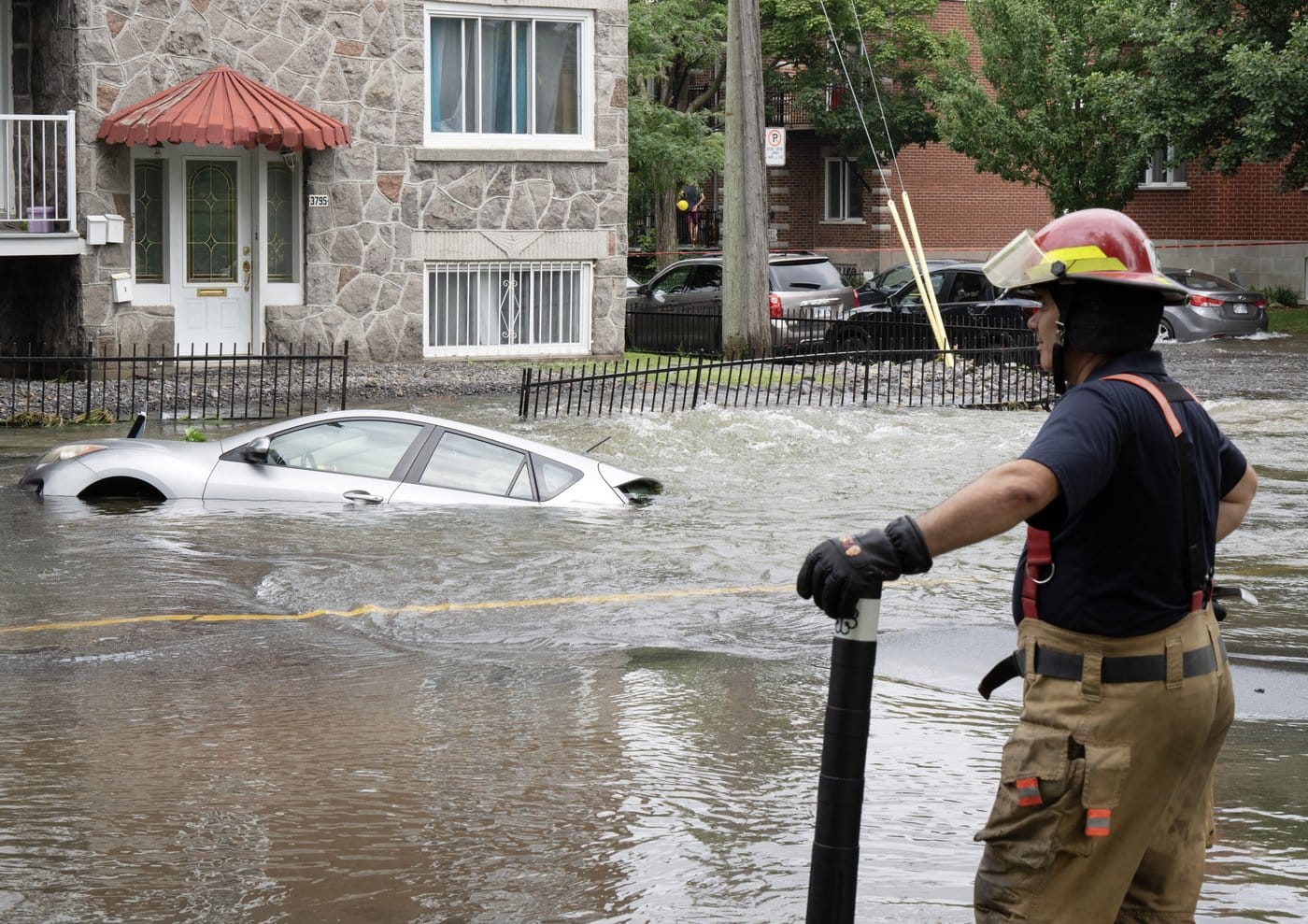Following floods, insurers are unsure about the future of basement flats in the City of Montreal
“I don’t feel right renting it to anyone because I know they’re going to lose everything eventually,” Monaco said in a phone interview.

Pasquale Monaco is reconsidering whether to continue renting the two-bedroom basement apartment in his Montreal building after it was flooded yet again in August, following the remnants of tropical storm Debby.
Four feet of water inundated the basement, marking the eighth time the five-unit building in St-Leonard has been flooded in five years, including five instances with over three feet of water.
“I don’t feel right renting it to anyone because I know they’re going to lose everything eventually,” Monaco said in a phone interview.
Recently, a member of Montreal’s executive committee suggested that basement apartments might no longer be viable in some areas.
Maja Vodanovic, responsible for waterworks in the city, said during a council meeting that living in basement units could become a thing of the past in certain flood-prone locations.
Although Montreal’s mayor clarified that any potential restrictions on basement apartments would apply only to new buildings in flood-risk zones, some experts and insurers are advocating for a broader discussion on the feasibility of below-ground housing as extreme weather events, such as heavy rainfall, increase in frequency.
The Insurance Bureau of Canada recently declared the flooding caused by Debby on August 9-10 as the most expensive weather disaster in Quebec’s history, surpassing the 1998 Ice Storm, with an estimated $2.5 billion in insured damages.
Craig Stewart, a vice-president with the insurance bureau, said a large number of the 75,000 personal property claims related to Debby were due to basement flooding.
"Basement flooding has cost hundreds of millions, if not billions, in certain years across Canada," Stewart noted. Flooding from rain, rising rivers, or sewer backups can be both costly and dangerous, causing structural damage, mould, and ruined belongings, he explained. Floods can even be fatal.
As flooding events become more frequent, insurers are increasingly limiting coverage, raising premiums in high-risk areas, or declining to offer flood insurance altogether. "Those situations are becoming uninsurable," Stewart said, adding that reviewing where people are allowed to live in basements is a sensible step.
Joanna Eyquem, managing director of climate-resilient infrastructure at the Intact Centre on Climate Adaptation, University of Waterloo, highlighted that the rise in short, intense rainfall episodes due to climate change is overwhelming urban drainage systems.
Solutions include upgrading sewers, building retention ponds, and helping homeowners improve drainage. Montreal is already creating "sponge" parks and streets to better absorb water and reduce runoff into sewers.
However, Eyquem advised homeowners in frequently flooded areas, often built on low-lying land or above paved-over former rivers, to reconsider living or storing valuables in basements.
At a recent city council meeting, several St-Leonard residents voiced frustrations with city officials, asking why more wasn’t being done to prevent flooding, such as constructing retention basins or enlarging sewer systems.
One resident, who rents four basement units, expressed exasperation after enduring biannual floods.
“In November, it will flood again. I don’t know what to do anymore,” he said, adding that he plans to stop renting his basement.
Vodanovic acknowledged that while the city is updating sewers and drainage, completing these upgrades could take 10 to 20 years, and even then, the systems may not prevent flooding during extreme weather events like 150 millimeters of rain in a single day.
Gonzalo Lizarralde, a professor at Université de Montréal, said it is technically possible to build watertight basements and large-scale sewer systems that mitigate flood risks, but the financial cost remains a major hurdle.
“Everything is possible,” he said. “The problem is, how feasible is it with limited resources and real-life conditions?”
Monaco criticized the city for failing to address the issue and highlighted the potential housing shortage that could result from losing basement apartments, which are often the most affordable rental options.
He warned that more people could become homeless if such housing disappears.
“Maybe there’ll be more people camping on Notre-Dame Street,” Monaco said. “Maybe then they’ll react.”





